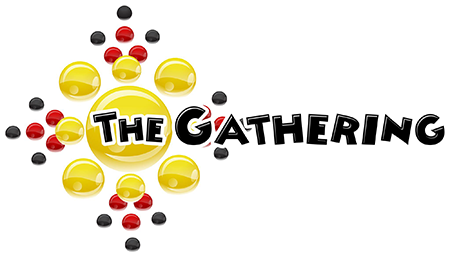The original article is available at 27gen.com.
Do you think people care about what you have to say? The truth is that the average person doesn’t know you. It’s not that you’re not likeable or smart; it’s just a matter of survival for people in today’s world. There is simply too much out there and not enough time to take it all in.
These words by communications expert Kem Meyer succinctly point out the dilemma for communicators today: for many people, the last thing they are looking for is unsolicited information, or someone to tell them to change their ways.
And yet many, if not most, of the sermons preached by pastors attempt to do just that.
However, many people will take the time to read or listen to something that reinforces an opinion they already have or speaks to a real need in their lives. If they are not looking for it, they won’t hear it. But, if you take the time to learn what they’re looking for, you can get in on a conversation already in progress in their minds.
How then, can a leader understand their audience in such a way to make their message more receptive? How can you connect, communicate, and influence your audience toward life-long transformation?
Ideas don’t sell themselves. As the forces of globalization, automation, and artificial intelligence combine to disrupt every field, having a good idea isn’t good enough. Mastering the ancient art of persuasion is the key to standing out, getting ahead, and achieving greatness in the modern world. Communication is no longer a “soft” skill―it is the human edge that will make you unstoppable, irresistible, and irreplaceable―earning you that perfect rating, that fifth star.
In Five Stars, Carmine Gallo, bestselling author of Talk Like TED, breaks down how to apply Aristotle’s formula of persuasion to inspire contemporary audiences. As the nature of work changes, and technology carries things across the globe in a moment, communication skills become more valuable―not less. Gallo interviews neuroscientists, economists, historians, billionaires, and business leaders of companies like Google, Nike, and Airbnb to show first-hand how they use their words to captivate your imagination and ignite your dreams.
In the knowledge age―the information economy―you are only as valuable as your ideas. Five Stars is a book to help you bridge the gap between mediocrity and exceptionality, and gain your competitive edge in the age of automation.
A Simple Solution
If your great ideas are locked in your head they are useless to you, your team, and your audience. You have to be able to explain your ideas efficiently and persuasively.
Mastering the ancient art of persuasion is the key to thriving in a world of rapid change. Developing superior communication skills is no longer an option; it’s fundamental for success. Being able to communicate persuasively and entertainingly makes a compelling case for communication as the crucial differentiator – even in this digital age.
In a world where everything and everybody is competing for the attention of your audience, the ability to communicate is becoming more important than ever.
How can you get better at transporting your thoughts and emotions into the minds of other people?
Mastering the ancient art of persuasion – combining words and ideas to move people to action – is no longer a “soft” skill. It is the fundamental skill to get from good to great in the age of ideas.
The TED stars all practice five presentation habits.
Replace bullet points with pictures
People love pictures because they are a communication tool that dates back as far as humans roamed the planet – back to the cave drawing. Study after study confirms that pictures are far more impactful – and, ultimately, memorable – than text alone.
Make the audience laugh
Humor almost always leads to engagement because it’s one of our most primal and engrained emotions. While you don’t need to be a stand-up comedian to be a hit on the TED stage, a little humor will help you stand out. If they’re laughing, they are listening.
Share personal stories
The ancient brain is wired for stories. Today neuroscientists in the lab are using science to prove what we’ve know for thousands of years – stories are the best tool we have to develop deep, meaningful connections with those we wish to persuade. Facts don’t launch careers; stories do. Facts don’t launch movements; stories do.
Make presentations easy to follow
Skilled TED speakers use humor, tell stories, and structure the argument so that it’s easy to follow and easy to remember. They rely on two specific techniques to do so: headlines and the rule of three.
Promise your audience that they will learn something new
Learning is addictive, thanks to that part of our brain known as the amygdala. When you receive new information, the amygdala releases dopamine, which acts as your brain’s natural “save” button. The need to explore, to learn, something new, to be attracted to something that stands out is wired deep in our DNA. Give your audience something new and delicious to chew on.
A Next Step
While preparing for your next communication opportunity, take the time to review the five ideas above, using them to sharpen your presentation skills.
On a chart tablet, write the five key points listed above, leaving space below each one.
With an outline of your topic in hand, go down the list and write in ideas and actions that can be used for each of the points. After you have finished, review the list and choose at least one from each of the five areas to implement.
Prior to your presentation, enlist the help of a close friend or colleague who is familiar with your communication style. Tell them you would like for them to listen to your presentation, taking notes on not just the information being presented, but also the style and methods used.
Within a day after the event, arrange for a “debrief” with your friend or colleague. Bring out the chart tablet, and make notes from the debrief on it in a different color.
Use the debrief time to sharpen your presentation skills by adding the ideas and actions that worked to your regular preparation and presentation methods.






